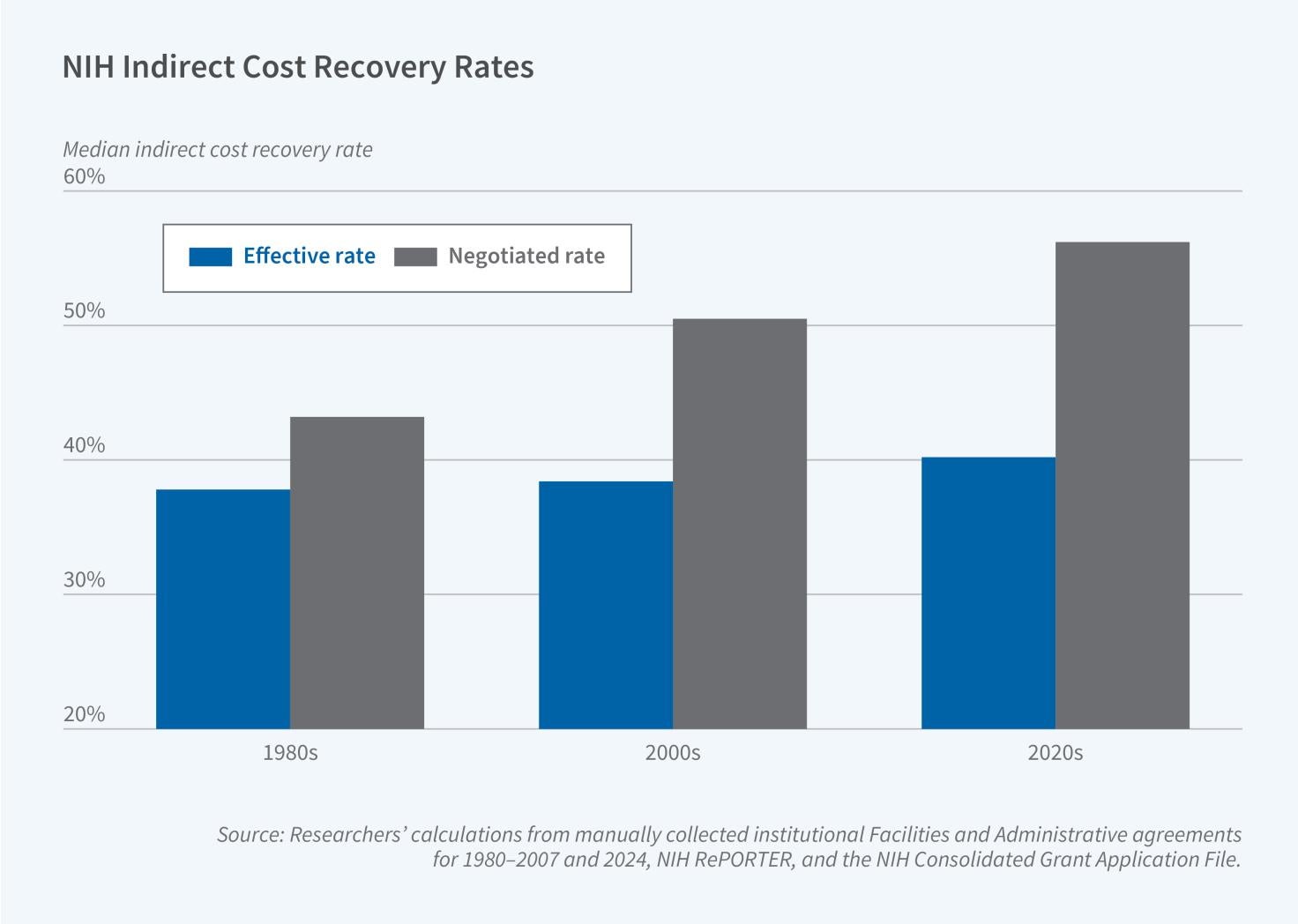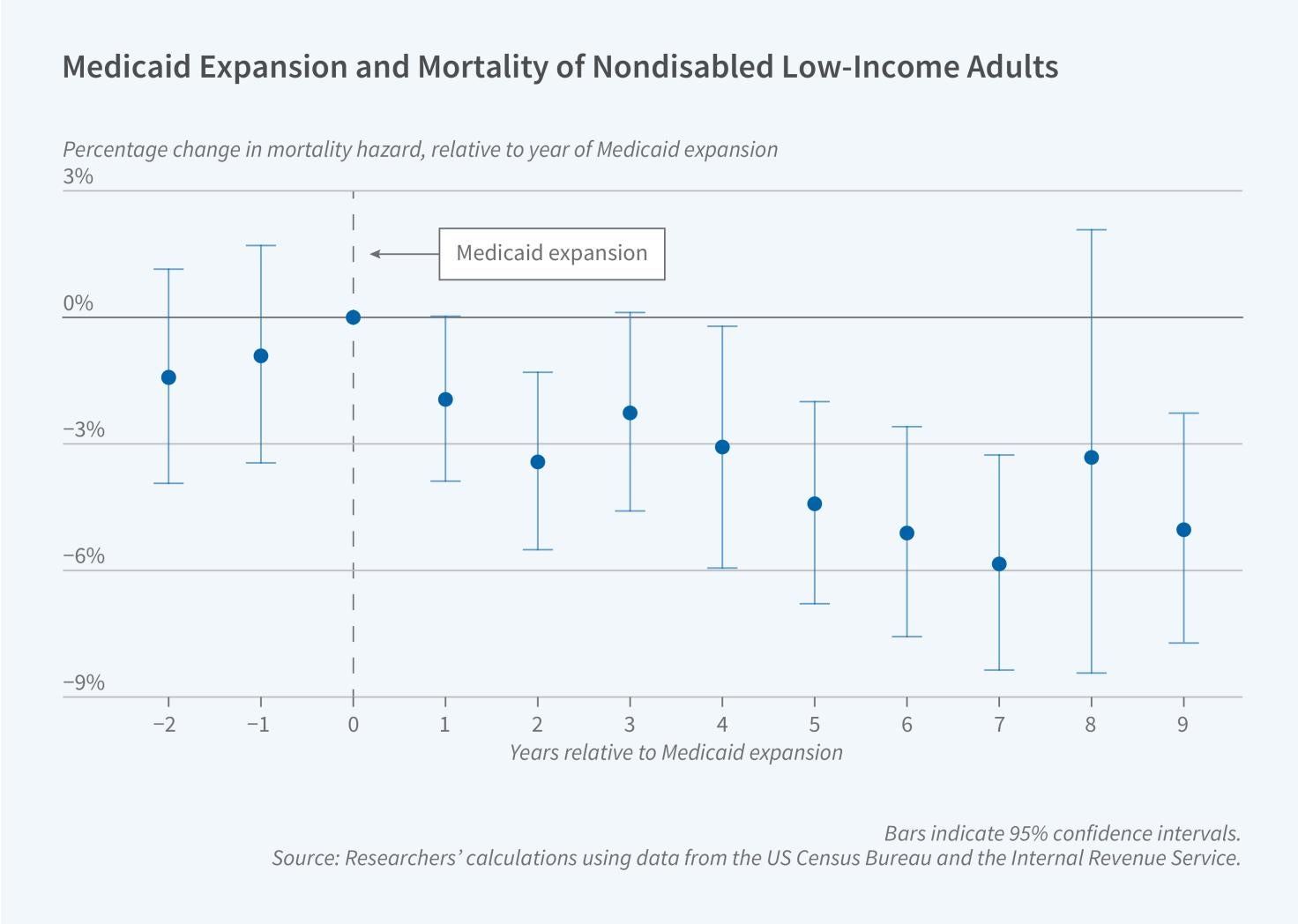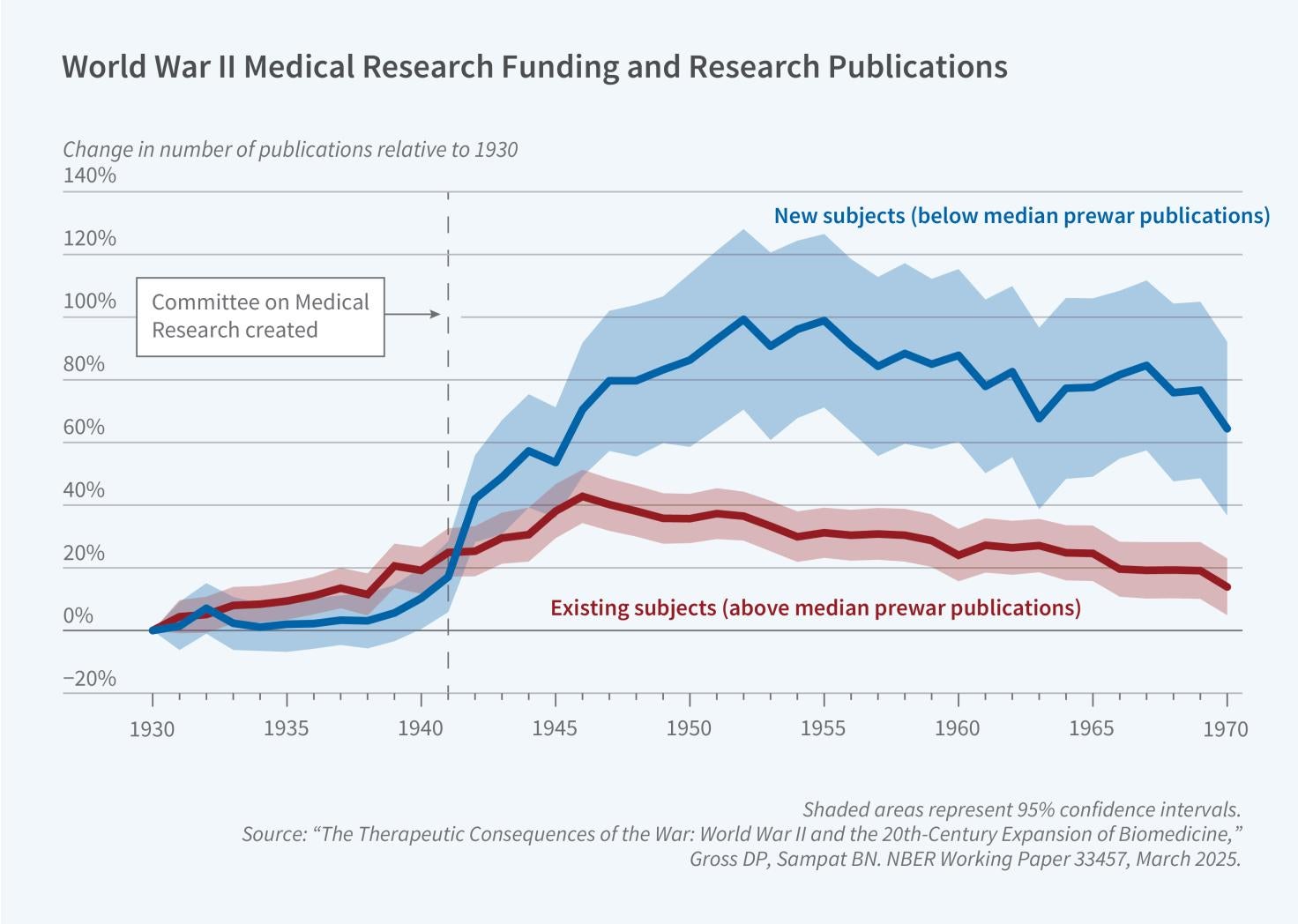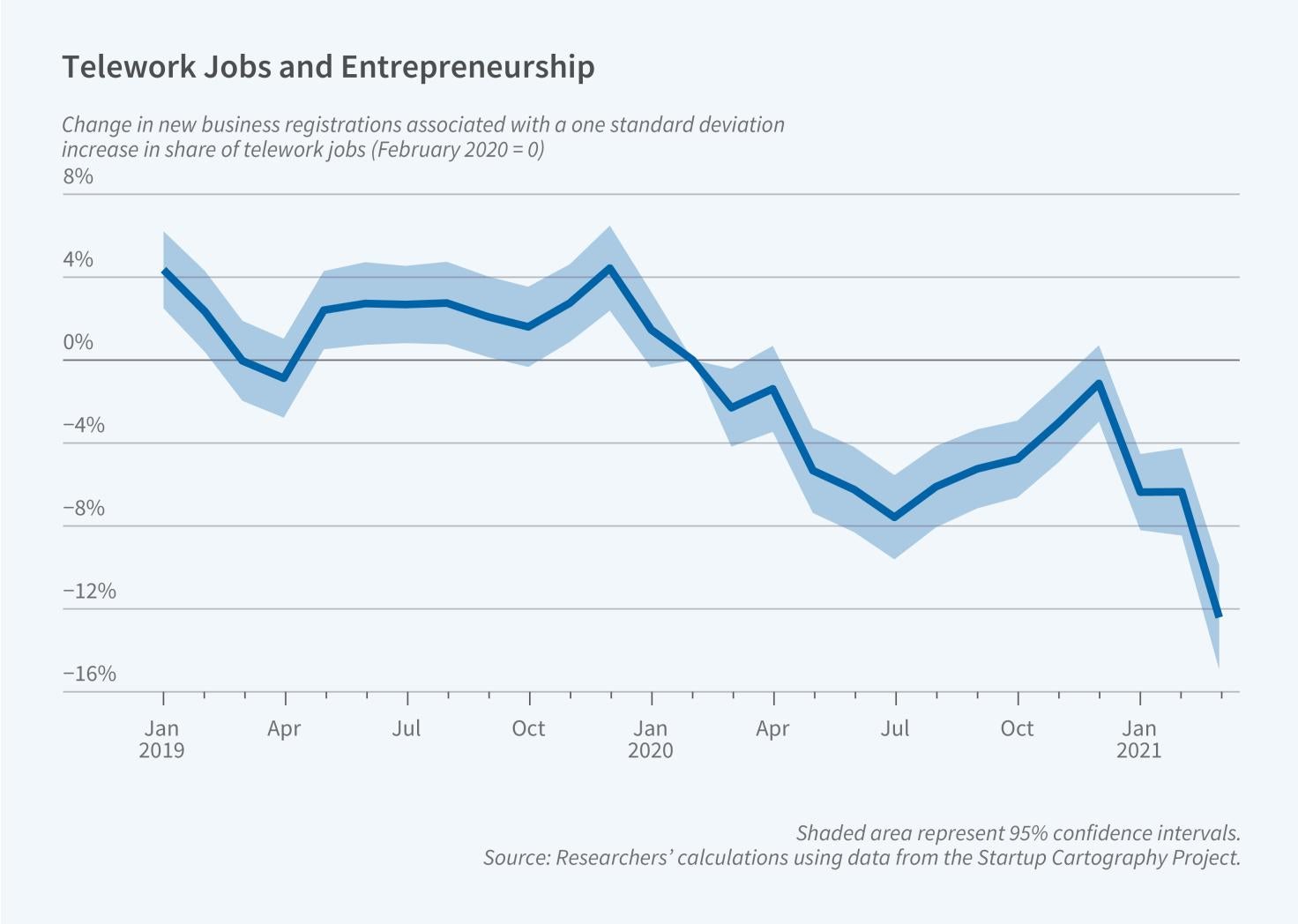National Bureau of Economic Research
Latest from the NBER
A research summary from the monthly NBER Digest

Indirect Cost Recovery in Research Funding
article
For more than 75 years, the federal government has been the largest funder of scientific research at US colleges and universities. Federal science funding includes both direct costs for specific research activities and indirect costs that support the facilities, equipment, and administrative expenses that are needed to conduct these activities.
Federal reimbursement for facilities and administrative (F&A) expenses was introduced during World War II as a way of compensating universities, hospitals, and companies conducting war-related research for expenses associated with lab space, shared instruments...

Three NBER Affiliates Join CEA, CMS, and IDB
news article
Research associates Laura Alfaro, Andrew C. Johnston, and Anup Malani have taken leave from their academic positions and the NBER to serve in policy roles at the Inter-American Development Bank (IDB), the Council of Economic Advisors (CEA), and the Centers for Medicare & Medicaid Services (CMS), respectively. Alfaro has been named the Chief Economist and Economic Counselor at the IDB, which is a leading international development finance organization based in Washington, DC. Johnston is serving as a Senior Economist at the CEA, and Malani as the Chief Economist at CMS. Alfaro, who is affiliated with…
From the NBER Bulletin on Health

Medicaid’s Lifesaving Effects on Low-Income Adults
article
Lower-income adults in the US are more likely to lack health insurance and to suffer worse health, a correlation that raises the long-standing question of whether health insurance affects health. In Saved by Medicaid: New Evidence on Health Insurance and Mortality from the Universe of Low-Income Adults (NBER Working Paper 33719), Angela Wyse and Bruce D. Meyer present new evidence on this question by evaluating the consequences of recent Medicaid expansions.
To study the impact of Medicaid on mortality, the researchers exploit variation in the state-level adoption and timing of expansions of Medicaid eligibility to childless, nondisabled, non-elderly adults. Most, but…
From the NBER Reporter: Research, program, and conference summaries

Program Report: Development of the American Economy
article
The Development of the American Economy (DAE) program was one of the first research programs launched by Martin Feldstein in 1978 when he formalized the modern structure of the NBER.
The mission of the program is to research historical aspects of the American economy. Its members are economic historians whose specific interests span many subfields within economics, including macroeconomics, labor economics, finance, political economy, trade, and industrial organization. Broadly, economic history research comes in two flavors. First, economic historians study the evolution of economic trends that illuminate issues relevant to the modern economy, such as the entry of women in the labor force and the moderation of economic crises over time. Second, economic historians use the natural experiments offered by history to test economic…
From the NBER Bulletin on Entrepreneurship

Entrepreneurship as an Alternative to Flexibility at Work
article
The surge in remote work in recent years has transformed labor markets, with potentially important implications for the interaction between workplace flexibility and entrepreneurship. In Hustling from Home? Work from Home Flexibility and Entrepreneurial Entry (NBER Working Paper 33237), John M. Barrios, Yael Hochberg, and Hanyi (Livia) Yi explore whether the increased flexibility provided by work-from-home (WFH) arrangements has affected entrepreneurial decisions. They focus on the COVID-19 pandemic as a natural experiment and analyze how the sudden shift to remote work affected new business creation. Guided…
Featured Working Papers
In 13 northern European countries—Belgium, Denmark, Finland, Germany, Iceland, Ireland, Luxembourg, the Netherlands, Norway, Sweden, Switzerland, Turkey, and the UK—the historical u-shape in life satisfaction by age has been replaced by satisfaction rising with age, according to David G. Blanchflower and Alex Bryson.
Variation in government support for STEM PhD training across agencies and over time since 1950 suggests that when the federal government increases the number of PhD trainees it supports, the number of PhDs awarded rises by approximately the same number, according to Dror Shvadron, Hansen Zhang, Lee Fleming, and Daniel P. Gross.
Karen Clay, Grant Miller, Margarita Portnykh, and Ethan J. Schmick study the decline in the number of US medical schools over the period 1905–1915 and find a 4 percent reduction in physicians per capita within 300 miles of a closure, along with a decline in infant and non-infant mortality rates of 8 and 4 percent, respectively.
Lowering the required training hours for cosmetology licensing raises licensing completion, lowers tuition, and expands enrollment among some groups of cosmetology students, without affecting subsequent earnings, according to Nicolas Acevedo Rebolledo, Kathryn J. Blanchard, and Stephanie Riegg Cellini.
Immigration has a large, positive, and persistent impact on the income of EU natives who work in jobs that are exposed to immigrants’ consumption, Sigurd Galaasen, Andreas R. Kostøl, Joan Monras, and Jonathan Vogel find.
In the News
Recent citations of NBER research in the media
_______________________________________
Research Projects
Conferences
Books & Chapters
Through a partnership with the University of Chicago Press, the NBER publishes the proceedings of four annual conferences as well as other research studies associated with NBER-based research projects.
Videos
Recordings of presentations, keynote addresses, and panel discussions at NBER conferences are available on the Videos page.